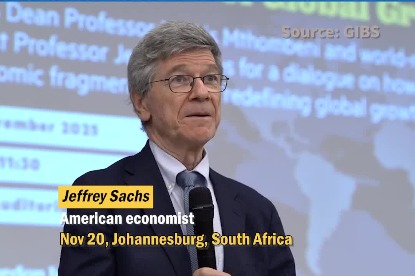Africa urged to chart new paths amid funding cuts

As global health funding faces historic cuts, Africa stands at a crossroads — between viewing the moment as a catastrophe or as a course correction.
On that backdrop, health experts are calling for a shift from despair to determination, urging African countries to redefine what self-reliance and sustainability mean for the continent's health.
Catherine Kyobutungi, executive director of the African Population and Health Research Center, said Africa should move beyond catastrophizing what happened and contemplate how to move forward.
Since January, the ripple effects of major donor funding reductions, notably from the United States and other Organization for Economic Cooperation and Development, or OECD, countries, have been felt across the continent.
Kyobutungi said even though the aid cuts have affected sectors unevenly, with some stability in HIV and malaria programs, maternal and child health as well as water and sanitation have seen deep reductions.
She, however, said the trends are not new, noting they represent an acceleration of a long-standing decline in development assistance for health. "The US government has just accelerated a trend that has been observable over the past five years among traditional donor countries," she added.
She said the danger is not just the funding cut but the precedent it has set — that aid can be withdrawn overnight. "Even as Africa has to think about its dependence on aid, it has to interrogate what the set precedent means going forward," Kyobutungi said.
Despite the gravity of the situation, many experts and leaders across Africa see an opportunity for transformation, noting that the funding gap exposed the weakness of a system that has been leaning heavily on donors.
During the Africa Health Sovereignty Summit held in Ghana in August, leaders called for sustainable health financing through domestic resource mobilization and less reliance on aid.
Daniel Mwai, the Kenyan presidential adviser on health, said sustaining Africa's health gains will require strong political and technical leadership at every level.
"You cannot align with sustainability like instant coffee," he said, noting that the journey toward sustainability requires meticulous planning, strong trade-offs, and the willingness to rethink what is affordable and effective.
































